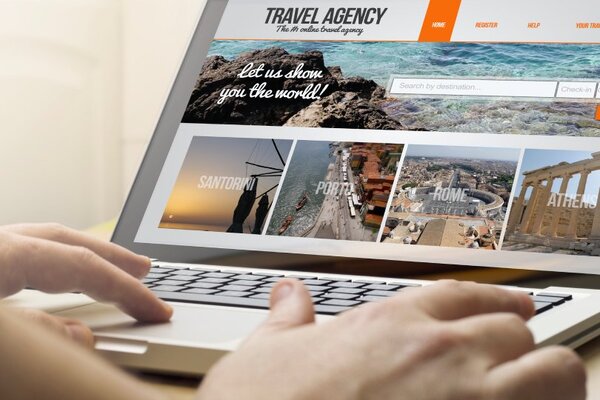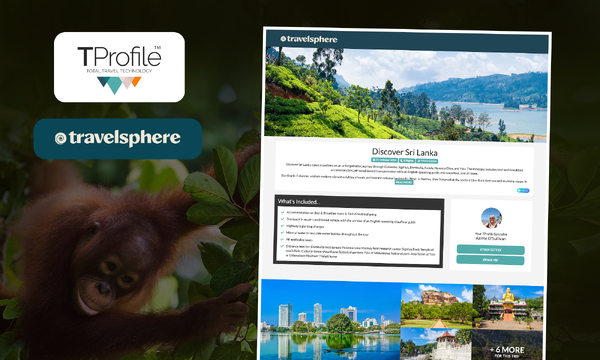Five reasons your travel website might be losing you customers
Outdated design, slow loading speed, and poor mobile optimisation can all negatively impact the user experience and sabotage your sales, warns Andy Headington, chief executive officer at Adido
In today’s digital-first world your website is the gateway to your business. In the travel industry, it should be a focal point for inspiring and converting potential customers. Here are five reasons why an upgrade could make all the difference in attracting and retaining clients.
1. Your website isn’t mobile first
Mobile users are likely to make up more than half of your website traffic, so it’s important to create the best user experience for both mobile and desktop. This doesn’t simply mean that if your website runs on a phone, everything is fine – it’s got to be ’mobile first’, especially as potential customers increasingly use mobile to research destinations, book trips and compare prices while on the go.
Google takes the mobile version of your website into consideration for indexing and ranking pages, called mobile-first indexing. When designing content for the mobile-first index, you need to think about what users are seeing on their phone, considering the content usability and visibility, while taking core web vitals, site performance and page experience into account.
2. Your design doesn’t reflect your business
Never judge a book by its cover… unless we’re talking about web page design. There are a few questions to ask yourself when it comes to whether your website design reflects the business, or if it’s out of date:
- Are your brand, locations and packages being well conveyed?
- Have you rebranded and not yet updated your website?
- Has your audience moved or changed?
- Have your competitors got better looking websites?
- Have you got market intelligence that tells you that your conversion rates are behind the time?
It’s possible that with a little TLC you can change the templates or content of your existing site, but often a website rebuild is the best answer.
3. Your website doesn’t and can’t rank with Google
Google is still the only search engine in town, with an overwhelming 94% UK market share, so your website needs to be tailored accordingly. Here are a few reasons you might be struggling to rank:
Poor tech: Badly built, slow webpages will be slow to be indexed, if at all. Excessive use of Javascript can make this a big issue. We’ve seen some travel websites get almost no organic traffic due to this.
Poor code: Templated websites can create huge web pages; excessively long pages can create issues with indexing and longer load times.
Poor page management: Some content management systems will handle redirects automatically, creating long redirect chains that cause search robots to lose interest and waste crawl budget.
4. Your website has bad UX
A good user experience is extremely important for website performance – users want to easily find what they’re looking for. Bad UX and templates that steer users down dead ends and lead them in circles affects session duration and whether they’ll want to come back again. Slow loading times are particularly problematic – you’d be hard pressed to find anybody more impatient than someone waiting to access a web page.
5. Your website is inefficient
When time is money, efficiency is everything. Old websites can have bottlenecks that create issues which are hard to fix without starting fresh or upgrading. For example, choosing the wrong tech stack can lead to booking or enquiry forms not getting pushed through to customer relationship management databases, requiring manual data entry. This is especially problematic when websites become a patchwork of plugins and custom CSS, creating compatibility issues. A new website would address basic issues like replacing poor data structures that can’t be changed and, in this situation, you would spend a little to save a lot in the long run.
Final thoughts
Ultimately, a bad website costs money through lost sales and bookings to competitors with better sites. Focusing on improving certain aspects of your website or creating a new one will hopefully improve your conversion rate, SERP (search engine results page) ranking and be worth the cost. An investment in a new website in 2025 could boost conversion rates by just a few % each year but over a five-year period could pay back handsomely. For the longevity of your business, take into consideration when it may be time to upgrade or invest in a new website.
This content is supplied in partnership with Travel Technology Initiative (TTI), a not-for-profit organisation providing members with the latest thinking on technology as well as developing industry-wide standards to benefit the whole of the travel industry. For more information on TTI, visit tti.org
TTI’s next event on 24 February is a webinar with Brent Hoberman, co-founder of lastminute.com in conversation.
TTI’s Spring conference, AI in Action, takes place in London on 19 March. For details of both events, go to TTI’s website.
Sign up for weekday travel news and analysis straight to your inbox
Supplier Directory
Find contacts for 260+ travel suppliers. Type name, company or destination.












